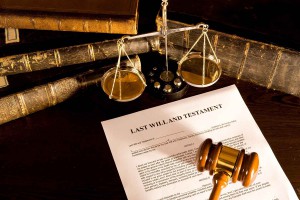What happens to your loans and debts when you die?
It’s probably not something you’ve given much thought to, but understanding the way debt works after we pass on is important for all investors to consider, so as to ensure that our loved ones are financially taken care of – and not burdened – afterwards.
Of course death is not a nice thing to think about, but it’s important to be proactive and to plan for the future.
Remember, being prepared (and making sure your loved ones are too) will make the process far less stressful and less costly in the long run.
There is a standard procedure for dealing with debt after death, so here’s what you need to know about what will happen, and how to prepare in advance for some common issues that your family members may face.
What happens to your debt after you die?
The general rule is that your debt, whether it be a mortgage, private loans, credit card debt or car loans, will need to be paid back.
In most cases, the appointed executor of the estate will use the deceased’s assets to see to this.
With unpaid mortgages here’s what you can expect:
Ordinarily, the executor of your will will use your estate to pay off the mortgage.
- In the event that there is a substantial amount of money within the estate to pay off the mortgage, the inheritors may elect to keep the property which is mortgaged.
- It is also possible for a relative, nominated in the will, to legally inherit and take ownership of the house. In this circumstance, notifying the lender may allow them to assume your mortgage.
- It is also possible that a mortgage may be paid out from proceeds of a life insurance policy.
In the event that your estate can’t pay off the mortgage and the inheritors can’t afford it either, the beneficiaries of your will generally opt to sell the property, pay off the debt using the proceeds of the sale and distribute the balance in a way requested in your will.
Will any of your debts be payable by your family?
Other people are only responsible for repaying your debts after you die if one of the following scenarios are true:
- The debt is in joint names with someone else, such a home co-owned by husband and wife.
- The debt is secured against a particular asset owned by someone else, such as a husband and wife’s joint loan, secured against a property owned by the surviving spouse.
- Someone has guaranteed the debt.
What do you need to organise?
To create as little hassle as possible for your relatives, it’s essential that you pre-elect the executor of your estate.
This is normally done upon creation of your will.
Ensure that the executor is willing to take on the responsibility.
If a suitable executor can’t be found, you may choose your accountant, solicitor or public trustee company.
Make sure that your will is regularly updated and that your wishes are clear.
Discuss any outstanding debts with you lawyer and let your family members know what the procedures will be.
For example, if you would like a relative to take ownership of your house and assume the mortgage, clearly state this in your will, leaving no room for interpretation.
What else do your family members need to watch out for?
There are a few potential scenarios that you don’t want to burden your loved ones with:
- Joint debts. In the event that a relative co-signed on a credit card debt or loan, they will be liable to pay it off even after death of the co-signee.
- Authorised user accounts. ‘Authorised users’ on credit cards are not responsible for paying the card holder’s outstanding debts, however, remaining attached to this account may impact their credit score. So it makes sense that the authorised user contacts the lender and request removal from this account.
- Joint tenants vs tenants in common. If you co-own a property with someone as a of one “Joint Tenant” rather than the more usual tenants in common the surviving Joint Tenant or tenants acquire the whole property automatically by operation of law. It follows that property held in joint tenancy does not form part of the estate of the tenant who dies. So a Joint Tenant cannot in her or his will deal with property held in joint tenancy.
What it the estate can’t pay off the debts?
While it is normal for debts to be erased if there are not enough assets or money in the estate to pay them off; creditors have been known to have collection agencies harass heirs into paying debts.
Let your family members know that this is not legal, and to consult a lawyer if it occurs.
Now that we’ve talked about the worst, go ahead and prepare and then enjoy your life to the fullest.


No comments:
Post a Comment